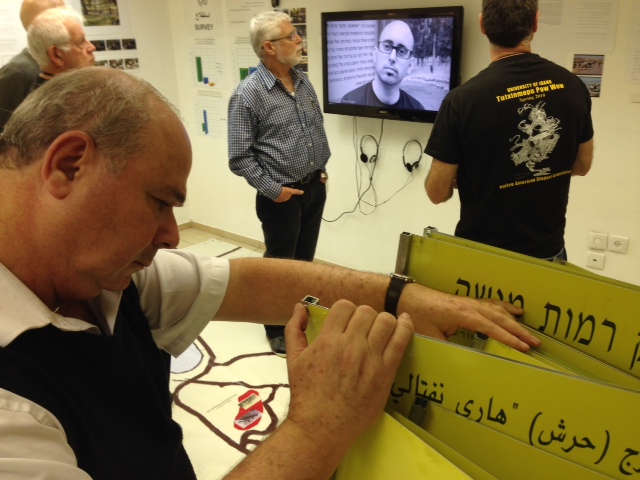Info
District: Hebron
Population 1948: 520
Occupation date: 23/10/1948
Occupying unit: Giva'ati
Jewish settlements on village/town land before 1948: None
Jewish settlements on village/town land after 1948: Beit Nir
Background:
Kudna Before 1948
Located on the lower slopes of the Hebron Mountains at 25 distance from Hebron, Kudna was linked to Bayt Jibrin, and then further to Hebron, Bethlehem, and al-Faluja. In the late nineteenth century, the small village was surrounded by olive trees, and its Muslim population had their houses built along the track from Bayt Jibrin to Dayr al-Dubban. New housing was constructed along this street during the British Mandate.
A well from the eastern edge of the village was providing the community with drinking water, and the agricultural land was planted in grain, vegetables, and fruit such as figs and olives. As it was usually the case, agriculture was rainfed, and the uncultivated land was used as grazing ground for goats and sheep. The remnants of a fort, previously inhabited caves, and cisterns were marking the archeological site.
Occupation, Depopulation and Israeli Settlements
Falling in the same circumstances as 'Ajjur, the village of Kudna was occupied on 22-23 October during Operation Yo'av by Israeli army's Biv'ati Brigade. As it was the case with the other villages taken during the operation, all of the remaining residents were expelled [Benny Morris].
The settlement of Beyt Nir was established in 1955 on the west side of the village lands, following Paggit which may have been built in 1952.
The Village Today
The houses of what used to be the village of Kudna have now been reduced to levelled debris. Beneath an overgrowth of wild vegetation, one can see stones that served as fences for home gardens. The entire area is fences in by Israeli farmers as pasture.
-------------------------------------------------------------
Source: al-Khalidi, Walid (ed.). All that remains: the Palestinian villages occupied and depopulated by Israel in 1948. Washington DC: 1992.



